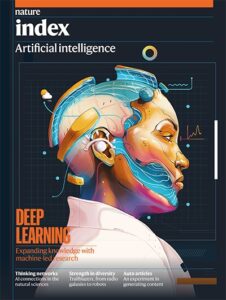Artificial Intelligence (AI) is a broad field that encompasses technologies enabling machines to perform tasks that typically require human intelligence, such as learning, problem-solving, and decision-making. AI is transforming industries and our daily lives, with applications ranging from self-driving cars to personalized recommendations.
Here’s a deeper dive into the world of AI:
What is AI?
- Definition:AI is the ability of a computer or computer-controlled robot to perform tasks commonly associated with intelligent beings, like reasoning, learning, and problem-solving.
- Key Concepts:AI involves developing algorithms and systems that can learn from data, identify patterns, and make predictions or decisions.
- Subfields:AI encompasses various subfields, including machine learning (ML), deep learning, natural language processing (NLP), and computer vision.
- Generative AI:A recent focus within AI is generative AI, which can create original content like text, images, and video.
How AI Works
- Algorithms:AI relies on algorithms, which are sets of instructions that tell a computer how to perform a specific task.
- Machine Learning:Machine learning algorithms allow computers to learn from data without being explicitly programmed, enabling them to improve their performance over time.
- Deep Learning:Deep learning, a subfield of machine learning, uses artificial neural networks with multiple layers to analyze complex data.
Applications of AI
- Healthcare: AI is used for diagnosing diseases, developing new drugs, and personalizing treatments.
- Finance: AI helps detect fraud, manage risk, and make investment decisions.
- Transportation: AI powers self-driving cars, optimizes traffic flow, and improves logistics.
- Customer Service: AI-powered chatbots and virtual assistants provide 24/7 customer support.
- Education: AI can personalize learning experiences, automate grading, and provide tutoring.
- Other Industries: AI is also used in manufacturing, agriculture, retail, and many other sectors.
Ethical Considerations
- Bias: AI systems can reflect biases present in the data they are trained on, leading to unfair or discriminatory outcomes.
- Privacy: AI technologies raise concerns about data privacy and security.
- Job Displacement: Automation driven by AI could lead to job losses in certain sectors.
- Accountability: Determining accountability for AI decisions and actions can be challenging.
- Safety: As AI systems become more autonomous, ensuring their safety and reliability is crucial.



